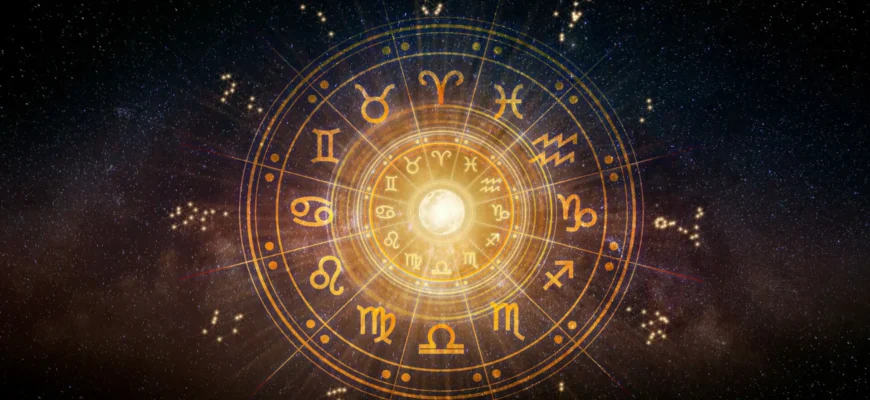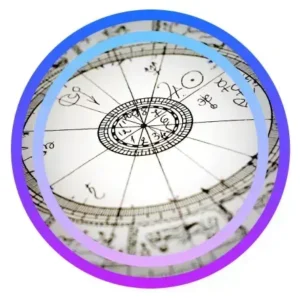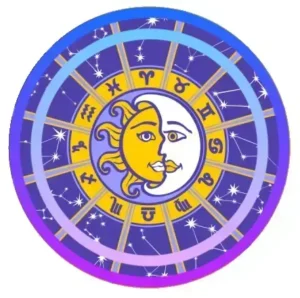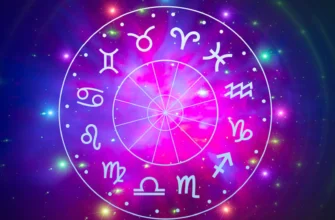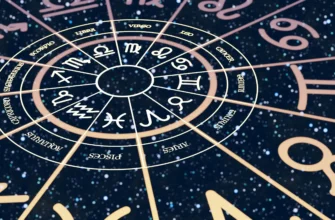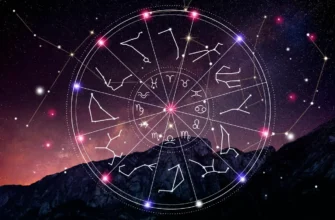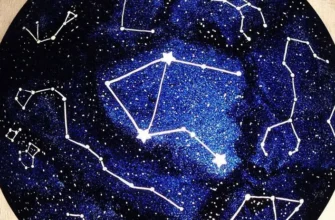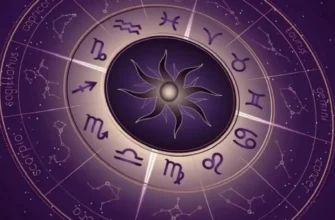Pluto trine Pluto in synastry is one of the most profound generational alignments, symbolizing the effortless flow of power, transformation, and shared evolution. Because Pluto moves slowly, this aspect often appears between partners of the same generation, yet in synastry chart meaning, it represents far more than shared age. It suggests that two people mirror each other’s deepest psychological shifts and karmic awakenings.
In relationship synastry, Pluto trine Pluto strengthens resilience, emotional honesty, and the ability to confront fears without destroying the connection. This aspect often appears in couples undergoing similar life transitions, allowing them to support each other through rebirth and reinvention. In deeper synastry chart analysis, it shows a long-term potential rooted in mutual empowerment rather than power struggle. For some, this becomes a signature of marriage compatibility astrology, where both partners evolve in parallel, drawing strength from the same source of generational wisdom.
Pluto represents profound transformation, power, death and rebirth, wealth accumulation, legacy creation, and the capacity to completely destroy old forms while creating new structures embodying concentrated power and resources in the Birth Chart.
When two people’s Plutos harmonize through the 120-degree trine aspect, they occupy compatible positions in Pluto’s approximately 248-year orbit around the Sun – typically indicating roughly 40-year age difference (one-third of Pluto’s cycle) creating natural mentor-successor, grandparent-grandchild, or teacher-inheritor relationships where elder Pluto’s accumulated power, resources, and transformative achievements become foundation younger Pluto builds upon rather than obstacles younger Pluto must overcome or destroy.
The trine, as astrology’s most favorable aspect for smooth energy flow, creates relationship where power transfer occurs naturally, inheritance flows without excessive conflict, and younger generation receives elder’s legacy as gift and opportunity rather than experiencing elder’s power as oppressive force requiring revolutionary overthrow or destructive rebellion. Both generations benefit – elder achieves immortality through successor carrying forward their work and values; younger achieves head start impossible through individual effort alone by inheriting resources, knowledge, and position previous generation spent lifetime accumulating.
The Grandparent-Grandchild Dynamic: Material and Spiritual Wealth
Pluto trine Pluto appears most commonly and beneficially in grandparent-grandchild relationships where 40-50 year age gap creates natural trine between their respective Pluto positions. “When Pluto forms 120-degree aspect with Pluto of one’s grandparents, it usually signifies that individual will receive significant assets or inheritance from their grandparents. This could include inheriting family business or receiving meticulous care from grandparents from young age, thus gaining substantial spiritual wealth.”
The inheritance operates on multiple levels simultaneously: material wealth (money, property, business enterprises, accumulated assets grandparents transfer to grandchild either through living gifts or posthumous inheritance); social capital (family reputation, business connections, cultural positioning grandchild inherits through association with grandparent’s established name and legacy); and spiritual wealth (wisdom, values, life philosophy, and consciousness development grandchild absorbs through intimate relationship with elder who provides guidance, stories, and living example transcending what parents – caught in middle generation’s practical struggles – can typically provide).
The trine ensures this inheritance flows smoothly rather than becoming source of family conflict, resentment, or generational warfare. Grandparents want to give; grandchild receives gratefully rather than entitledly. The transfer feels natural, appropriate, and mutually satisfying rather than creating obligation, guilt, or pressure that challenging Pluto aspects (squares, oppositions) between generations would produce. The grandchild doesn’t need to rebel against or destroy grandparent’s legacy to establish independent identity – instead, they can honor, preserve, and build upon what grandparent created while adapting it appropriately for their own generation’s needs and circumstances.
The “meticulous care from young age” proves crucial: grandparents with Pluto trine grandchild’s Pluto often take primary caregiver role or provide extraordinary attention, resources, and development opportunities during grandchild’s formative years – creating bonds transcending normal grandparent affection into something approaching parent-child intensity yet without parent-child conflicts around authority, discipline, or daily life management that often damage parent-child relationships during adolescent rebellion and independence establishment.
When analyzing birth chart astrology for family inheritance patterns and generational wealth transfer, Pluto trine Pluto indicates smoothest possible succession where elder generation’s assets, wisdom, and social position flow naturally to younger generation member becoming primary beneficiary and legacy carrier forward into future decades after elder generation passes.
Political and Religious Succession: Institutional Power Transfer
Beyond family contexts, Pluto trine Pluto manifests powerfully in “political and religious succession. For example, political party may take over power from previous generation, or individual may receive spiritual guidance and inheritance from master much older than themselves. Even reincarnation of Living Buddhas in Tibetan Buddhism may embody this kind of power transfer across generations.”
In political systems, the trine enables smooth leadership transitions where younger generation leader receives mentorship, resources, and institutional support from elder statesman or previous generation party leadership. The succession doesn’t require violent revolution, coup, or destructive generational warfare – instead, elder generation recognizes younger leader’s capacity and willingly transfers power, institutional knowledge, and political capital enabling smooth continuity while allowing necessary modernization and adaptation to contemporary circumstances elder generation recognizes but cannot personally implement given their age and historical positioning.
This contrasts sharply with Pluto square or opposition between generations creating revolutionary overthrow, violent transitions, or destructive generational conflicts where younger generation must destroy elder’s power structures to establish their own authority. The trine allows evolutionary rather than revolutionary change – preserving what works while updating what needs transformation, honoring past while moving boldly into future, maintaining institutional continuity while allowing individual leadership styles and contemporary responses to current challenges.
In religious and spiritual contexts, the trine enables authentic lineage transmission where “individual may receive spiritual guidance and inheritance from master much older than themselves” – the classic guru-disciple relationship where elder master spent lifetime achieving realization, accumulating wisdom, and developing spiritual powers they can now transmit to carefully chosen successor capable of preserving essential teachings while adapting expressions appropriately for contemporary students and future generations.
The Tibetan Buddhist tulku (reincarnated lama) system exemplifies Pluto trine Pluto’s operation: “reincarnation of Living Buddha immediately grants him religious and political power” – the young recognized tulku inherits not just spiritual authority but also accumulated wealth, institutional position, and political influence previous incarnation spent lifetime developing. The trine ensures this transfer occurs smoothly, with elder generation monks and administrators supporting young tulku’s development and authority rather than resenting or obstructing succession that might threaten their own positions or challenge their understanding of proper spiritual hierarchy.
The 40-Year Generational Gap: Why This Age Difference Matters
Pluto’s approximately 248-year orbit creates specific age gaps where Pluto aspects between individuals become geometrically significant. The trine (120 degrees) represents roughly one-third of Pluto’s cycle – translating to approximately 40-year age difference positioning elder and younger Pluto natives at complementary rather than conflicting life stages and historical moments.
This 40-year gap proves ideal for mentorship, inheritance, and power transfer: elder has accumulated sufficient resources, wisdom, and institutional power to pass forward; younger is mature enough to receive and manage inheritance responsibly yet young enough to carry legacy forward for decades; and both occupy sufficiently different historical moments that younger doesn’t directly compete with or threaten elder’s achievements and identity while elder doesn’t feel rendered obsolete or disrespected by younger’s necessary adaptations and contemporary innovations.
Contrast this with 20-25 year age gaps (often creating Pluto squares) where younger generation’s rising power directly threatens elder generation’s current authority, triggering defensive reactions, competitive dynamics, and generational warfare as both occupy overlapping historical moments and life stages creating zero-sum competition for resources, recognition, and social power. Or with peer relationships (minimal age difference) where both people occupy same generational Pluto position without creating inter-generational transfer dynamic at all – sharing historical moment and facing similar challenges without elder-younger positioning enabling inheritance and succession.
The 40-year gap also correlates with biological and social patterns: grandparent-grandchild relationships, elder mentor-young adult protégé pairings, founder-successor business partnerships, or retired expert-rising star professional collaborations where one person nears life’s completion while other approaches peak productive years – creating natural flow from elder’s culmination toward younger’s continuation rather than creating collision between two people both seeking peak influence simultaneously.
Era-Defining Characteristics: Pluto Through the Zodiac Signs
Understanding Pluto trine Pluto requires recognizing how Pluto’s position in different zodiac signs shapes entire generations’ characteristics, values, and historical experiences. The document provides comprehensive overview of Pluto’s influence through various signs, revealing how generational Pluto positions create distinct historical eras with unique challenges, opportunities, and defining characteristics:
Pluto in Aries (1822-1852): “Strong imperialist spirit and dog-eat-dog social competition” – generation characterized by aggressive expansion, pioneering conquest, and ruthless competitive individualism defining 19th century colonialism and industrial capitalism’s most brutal phases.
Pluto in Taurus (1852-1884): “Pursuit of money and material wealth, and rise of stock market” – shift from aggressive territorial conquest toward economic accumulation, financial innovation, and material consolidation as primary expressions of Plutonic power and transformation.
Pluto in Gemini (1913-1938): “Rapid technological development, with emergence of technologies such as telephone and radio communication” – information revolution’s first phase where communication technologies transformed social organization, political propaganda, and cultural transmission more profoundly than any previous innovation.
Pluto in Leo (1938-1957): “Rise of self-expression and entertainment industry” – generation valuing individual creativity, performance, and mass culture industries as expressions of power and influence, producing both artistic flowering and celebrity culture’s emergence as social force.
Pluto in Libra (1962-1971): “Focus on interpersonal relationships and social justice, emergence of war and conflict” – paradoxically combining peace movements with violent revolutionary activity as generation grappled with justice, equality, and proper balance between individual freedom and social harmony.
Pluto in Scorpio (1984-1995): “Global events such as spread of AIDS and financial bubbles” – generation confronting death, sexuality, and hidden psychological/economic forces through health crises and economic instability revealing systemic vulnerabilities and shadow material previous generations ignored.
Pluto in Sagittarius (1995-2008): “Globalization of trade and cultural exchange” – expansion beyond national boundaries as defining characteristic, creating both unprecedented international connection and nationalist/fundamentalist reactions against perceived cultural homogenization.
Pluto in Aquarius (2024-2043): “Era of comprehensive information and networking, where technology is integrated into life” – current transition into generation experiencing technology not as tool but as environment, raising fundamental questions about human identity, consciousness, and social organization in technologically-mediated reality.
Pluto in Pisces (1798-1812): “Romanticism flourished, and pursuit of art and spirituality arose” – brief historical window where Plutonic intensity channeled into artistic/spiritual transcendence and mystical rather than material expressions of transformation and power.
How Generational Trines Manifest: Complementary Historical Moments
When elder and younger Pluto positions trine, their respective generational characteristics complement rather than conflict. For example, someone with Pluto in Leo (born 1938-1957, now elderly) whose Pluto trines younger person with Pluto in Sagittarius (born 1995-2008, now young adult) creates dynamic where elder’s emphasis on creative self-expression, entertainment, and mass culture naturally supports younger person’s global perspective and cross-cultural exchange orientation.
The Leo Pluto elder might have built entertainment empire, developed artistic legacy, or achieved success through creative self-expression – accumulated resources and wisdom about performance, audience engagement, and cultural influence. The Sagittarius Pluto younger person naturally receives this legacy and expands it globally – taking elder’s creative achievements and broadcasting them across international audiences, adapting entertainment formats for diverse cultures, or building upon elder’s local/national success to create global brand or influence transcending original cultural boundaries.
Neither generation threatens the other: elder isn’t competing for global markets or contemporary audiences (those belong to younger generation’s moment); younger isn’t dismissing or destroying elder’s creative achievements (instead honoring them as foundation for expansion). The trine allows elder’s Leo self-expression legacy to flow naturally into younger’s Sagittarian global expansion – creating continuity, mutual respect, and complementary contributions where each generation’s strengths serve other’s purposes while both honor what makes their respective historical moments unique and valuable.
Similarly, someone with Pluto in Gemini (born 1913-1938, if still living would be very elderly) whose Pluto trines person with Pluto in Libra (born 1962-1971, now middle-aged) creates dynamic where elder’s technological innovation and communication revolution experiences inform younger person’s focus on social justice and relationship balance – perhaps elder pioneered communication technologies that younger generation now uses organizing social movements, coordinating justice activism, or creating platforms enabling unprecedented relationship formation and social coordination across geographical and cultural boundaries.
Conclusion: The Grace of Receiving What Others Built
Pluto trine Pluto in synastry ultimately represents rare gift of generational grace – relationship where younger person receives elder’s accumulated power, resources, and transformative achievements not through conflict, destruction, or revolutionary overthrow but through natural succession, willing transfer, and harmonious inheritance enabling younger to build confidently upon solid foundation previous generation established through their life’s plutonic intensity and transformative work.
The aspect teaches that not all generational transitions require destroying past to create future, that inheritance can flow smoothly when geometric relationships between planetary positions create complementarity rather than competition, and that approximately 40-year age gaps position elder and younger at optimal distance for mentorship, succession, and legacy transfer serving both people’s interests and evolutionary purposes while contributing to broader cultural and institutional continuity transcending individual lifetimes.
For those discovering Pluto trine Pluto in significant relationships through zodiac chart analysis – whether grandparent-grandchild, mentor-protégé, predecessor-successor, or any configuration involving substantial age gap creating this favorable geometric relationship – recognizing this aspect helps explain extraordinary generosity, smooth power transfers, and sense of destined succession where younger person becomes rightful heir to elder’s legacy not through aggression or entitlement but through natural recognition that elder’s life work requires continuation beyond their own lifetime, making younger person’s reception of inheritance simultaneously honor to elder’s achievements and opportunity for younger’s advancement impossible through starting from nothing rather than building upon solid foundation previous generation spent lifetime creating.

